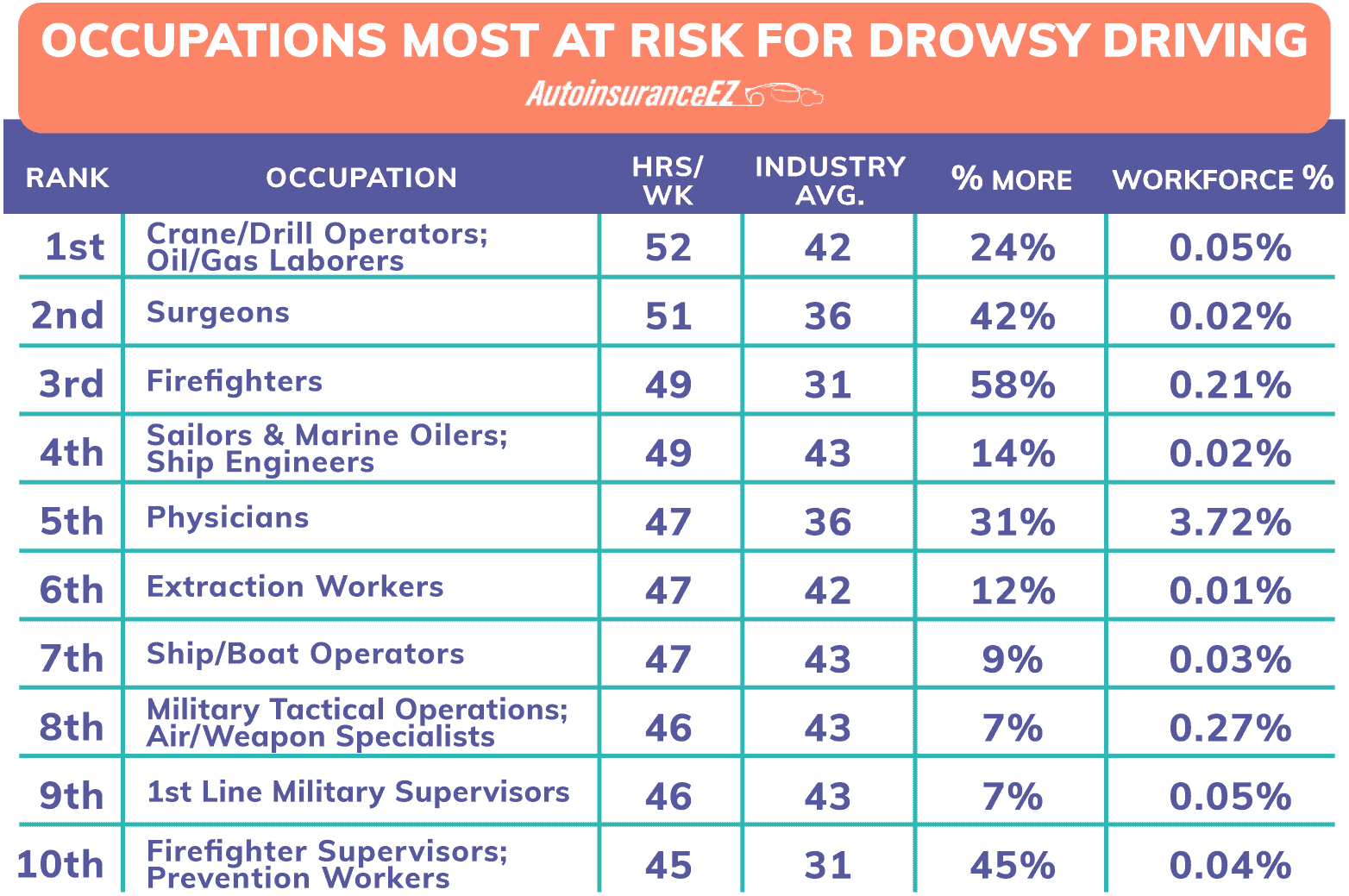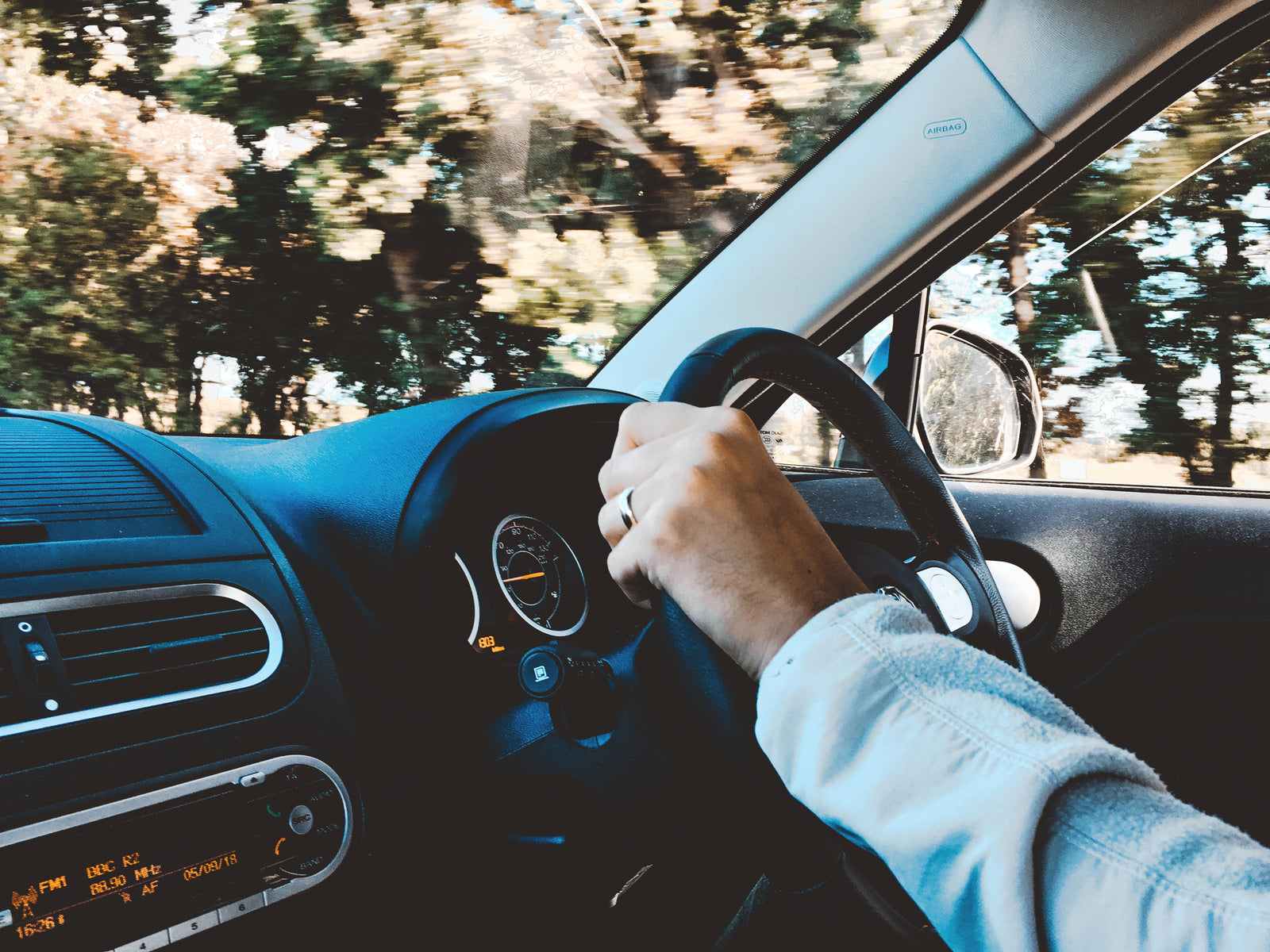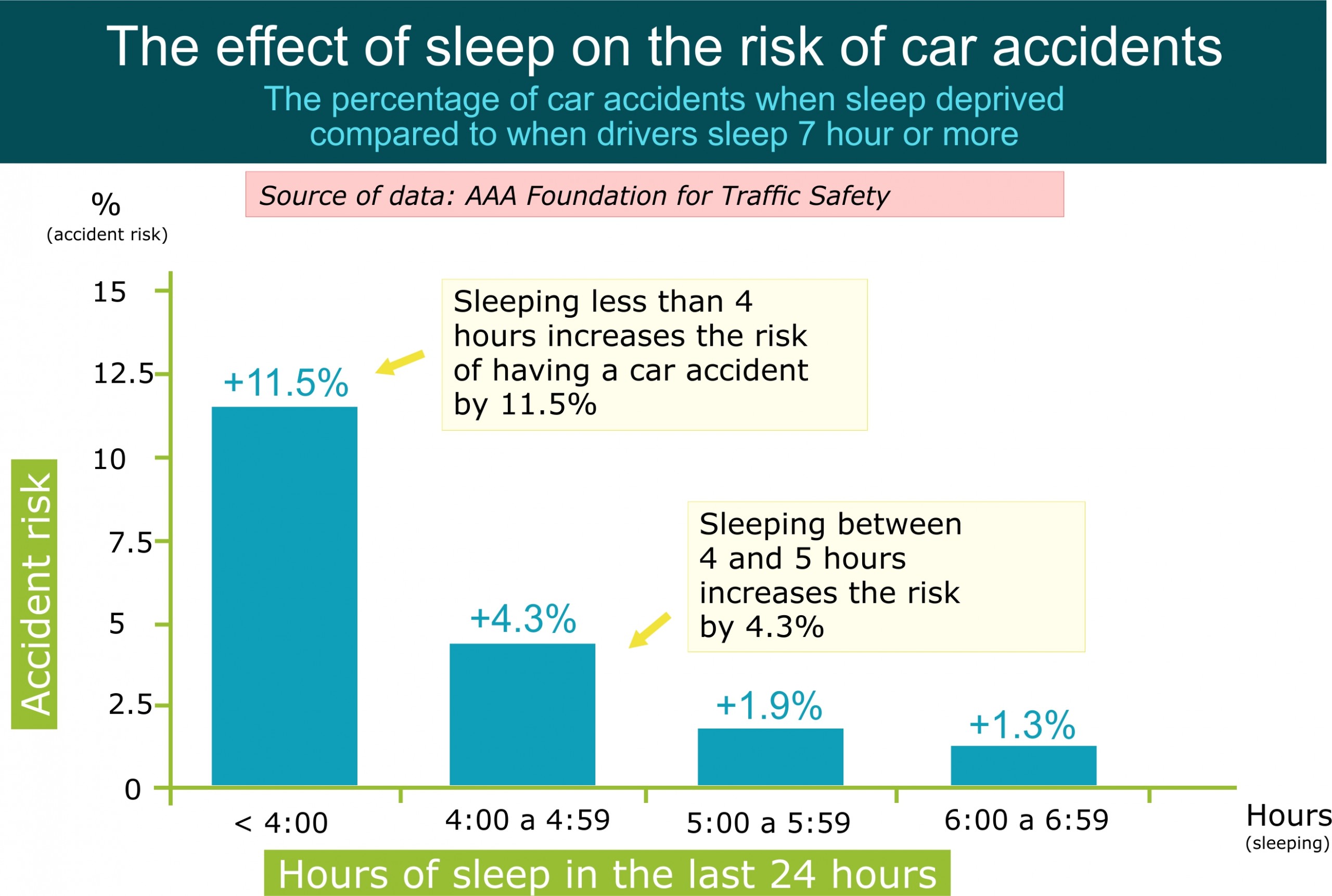Did you know that driving drowsy is often compared to driving under the influence of alcohol?
When you’re tired, driving may seem like it’s not a very dangerous task. All it requires is sitting in one spot, keeping the wheel steady, and pressing the gas or brake pedals, right?
Wrong. Since driving requires much of our attention, it quickly becomes a risky task if we’re running low on sleep.
Sleep deprivation quickly lowers concentration, reaction times, and problem-solving abilities. Therefore, you’re more likely to end up in an accident if you’re sleep deprived compared to well-rested.
Moreover, research has found that being awake for 17 hours is the equivalent of having a blood alcohol concentration (BAC) of 0.05%.
This is the BAC level that most Western European countries like Argentina, Australia, France, Italy, Spain, and more use for drunk driving violations.
In the United States, the legal BAC limit is 0.08% or higher, excluding the state of Utah, the first state to adopt the 0.05% BAC limit based on National Transportation Safety Board recommendations.
Therefore, if you’ve been awake for 17 straight hours, you’d be considered legally impaired in most of the world.
Furthermore, being awake for 24 hours is the equivalent of having a BAC of 0.10%, well above the legal limit in the United States. And that’s just the tip of the beer-soaked iceberg.
Dangers of Drowsy Driving
The impairment caused by being under the influence of alcohol is fairly easy to determine thanks to blood alcohol measurements.
On the other hand, measuring impairment caused by sleep deprivation is much more difficult and far less straightforward.
However, we do know that sleeping for less than four hours increases the risk of a car accident by 11.5 percent.
Research also suggests that tired driving leads to approximately 21 percent of all fatal accidents, overall. Drunk driving, on the other hand, is responsible for around 30 percent of fatal accidents.
The societal cost is undeniable. Each year, drowsy driving is estimated to cost up to $100 billion.
Most people are reluctant to admit to driving while drowsy – especially since there’s no way to measure the impairment it causes accurately.
That said, more people admit to tired driving than you might expect.
More than a quarter of drivers have admitted to driving while so fatigued that they struggled to keep their eyes open within the past month, according to AAA Foundation.
Certain occupations put people at a higher risk of drowsy driving due to long shifts and unpredictable working hours.

Meanwhile, coupling tired driving with driving under the influence of alcohol is an even deadlier recipe.
According to the UCLA Sleep Disorders Center, one single beer can affect someone who has only slept for four hours in the same manner as drinking six beers affects someone well-rested.
That’s why it’s important to avoid driving while sleep deprived and focus on getting your sleep schedule back on track. Your safety (and the safety of others on the road) depends on it.
How Sleep Debt Builds
Catching up on a lack of sleep isn’t as simple as taking a quick cat nap.
Running on low sleep causes a sleep deficit to build. This deficit continues to grow as you add on more and more missed hours of sleep.
As sleep debt increases, your ability to think, perform, and problem-solve as you would like dwindles.

Reaction times slow, making split-second, reflex decisions required for safe driving more and more challenging. But what constitutes a lack of sleep?
Anything less than around seven hours is typically considered short sleep.
That said, more than one-third of adults usually sleep for less than that each night, according to recent research.
Running low on sleep by even just one hour per night causes sleep debt and deprivation to build.
For example, if you run short on sleep by one hour each night for a whole week, your total sleep debt would equal seven hours. A quick nap won’t fix it – and neither will sleeping in on weekends to “catch up.”
Sleeping in further disrupts our normal sleep patterns and is proven to harm our physical and cognitive function; not aid in it.
@somnifix Replying to @somnifix sleep scientist Dr. Matthew Walker explains what to do after a poor night’s sleep 😴 #neuroscience #hubermanlab #biohacking #andrewhuberman #learntok ♬ Big Boys (sped up + reverb) - Remix - NVBR
Moreover, it leads to a false sense of recovery that may cause you to hop behind the wheel when you’re still drowsy.
In reality, sleep debt recovery takes place over the long term and requires consistency to be successful.
Research suggests that recovering from just one hour of lost sleep may take up to 4 days! Moreover, eliminating sleep debt altogether can take 9 days or longer.
Prevent putting yourself or other passengers and drivers in harm's way by recognizing the symptoms of sleep-deprived driving.
Signs of Drowsy Driving
Preventing driving under the influence of alcohol (or riding as a passenger with a driver who is) is fairly straightforward.
Don’t get in the car with someone who has been drinking, always have a designated driver, or use a ride share app.
The signs of tired driving, however, are less obvious.
According to the Centers for Disease Control and Prevention, symptoms of drowsy driving include:
- Frequent, consistent yawning or blinking
- Drifting across lanes or hitting rumble strips along the side of the road
- Challenges remembering the last few miles driven, sometimes called “highway hypnosis”
- Missed turns or exits
Ultimately, even if you feel a little bit groggy, you should avoid driving. If you experience any of the warning signs of drowsy driving or you are a passenger who recognizes these symptoms in a driver, pull over immediately.

It’s always better to switch drivers or stop driving for the night rather than putting your life and the lives of others in danger.
Work on keeping consistent sleep and wake times, aiming for at least seven hours of quality sleep each night.
Avoid blue light before bed, as it’s proven to cause insomnia – but expose your eyes to sunlight upon waking to keep your internal clock functioning as it should.
If poor sleep continues to be a consistent problem for you, addressing the root cause is the first step toward paying off your sleep debt and avoiding tired driving.
One common root cause? Snoring and sleep-disordered breathing.
Increase Sleep Quality With SomniFix
If you think you’ve gotten enough sleep but you still feel tired all of the time, mouth breathing and snoring may be to blame.
Snoring fragments our sleep, preventing us from reaching the deep sleep stages we desperately need to restore our minds and bodies.
This, in turn, hinders our concentration on the road.
Addressing disordered breathing at night ensures that we get the quality sleep we need.
Mouth breathing leads to snoring due to airway collapse. Over time, snoring may lead to sleep disorders like sleep apnea that require additional treatment to correct.
Our noses warm, filter, and humidify the air we breathe. The mouth not only lacks this sophisticated filtration and humidification – it also causes over-breathing that places the body in a stressed fight-or-flight state.
Quality sleep becomes challenging when the body is in overdrive. Nasal breathing not only properly oxygenates the body; it activates the parasympathetic nervous system for optimal relaxation and restorative rest.
You’re probably asking yourself, “How do I make sure I’m nasal breathing if I’m asleep?” Mouth tape offers a simple, straightforward solution.

Although it sounds outlandish, mouth tape provides a lip seal that prevents open-mouth snoring known to fragment our sleep.
Don’t just slap on any tape, though. Most tapes contain harmful irritants within their adhesive known to cause rashes.
SomniFix, however, was created with your sensitive skin in mind, Our strips are free from latex, gluten, and other harmful chemicals known to irritate the skin.
What’s more, our gel-like adhesive provides a lip seal that’s so gentle and comfortable, you’ll forget you’re wearing mouth tape at all.
If the idea of taping your lips shut seems daunting, rest assured that our patented central breathing vent is there to provide an emergency mouth breathing option if you experience the onset of overnight congestion.
As your work toward building healthy sleep habits and paying your sleep debt down to prevent drowsy driving, add SomniFix to the equation for your most restful sleep yet.




